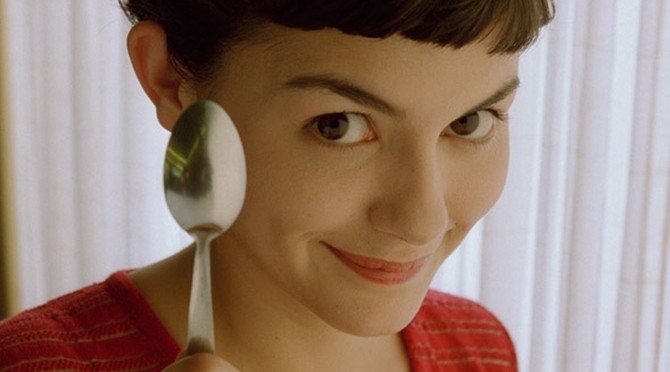Amelie: a self-absorbed woman?
By Elizabeth Ross
Amelie is Amelie Poulain, the central character in the 2001 romantic comedy film directed by Jean-Pierre Jeunet. Amelie is a waitress living in Montmartre who decides to change the lives of those around her.
At first glance, nobody would ever consider Amélie to be selfish, believing instead that she is selfless. However, behind her sweet smile and seemingly charming nature, there is a narcissistic motive behind her actions. Indeed, she is completely oblivious and unconcerned with the fate of the other characters, who she uses as her ‘guinea pigs’ in her ruses. For example, the only reason she sets up Georgette and Joseph is because she wants to test out Susan’s ‘recipe’ that if you take two people and let each think the other fancies them, they will fall in love. Therefore, this matchmaking is solely for her own amusement. She is fully aware of Joseph’s overly obsessive nature and hence, she should not have paired Georgette with him since the relationship was doomed from the start.
Moreover, she does not intervene when their relationship is falling apart. It is true, however, that some of her stratagems turn out well but this is simply a positive side-effect of the real reason behind her actions: to make her feel like she is a good person.
In fact, at the beginning of the film it is noted that, whether Dominique Bretodeau was touched or not, she would still be ‘a regular do-gooder’ since her actions are ultimately for her benefit, rather than for the benefit of others. Furthermore, when Dominique is touched, the focus is on how good this makes Amelie feel: ‘Amélie has a strange feeling of complete harmony with herself’. This sentence highlights her selfishness since, instead of reflecting on how happy it made him feel, she focuses on the positive way it made her feel. It is also interesting to recollect the scene where Amélie imagines herself as Marie Therèse, reinforcing the idea that she has an idealised version of herself, viewing herself as a saint.
Indeed, Amélie is reminiscent of Jane Austen’s Emma who similarly interferes with other people’s lives for her own amusement. The difference is that Jane Austen wanted the reader to realise the harm in these interventions and thus all of Emma’s ploys end in failure whilst Jeunet wanted the audience to fall in love with his heroine so made most of Amelie’s endeavours succeed. However, one must realise that Amélie’s actions are no better than those of Emma’s, it is just the way in which her actions (and the outcomes of her actions) are presented to us which encourages the public to perceive her in a positive light.
So, for me, Amelie is a manipulator and not a mignonne!
FΩRMIdea London, 18th October 2015.
From the same author:




